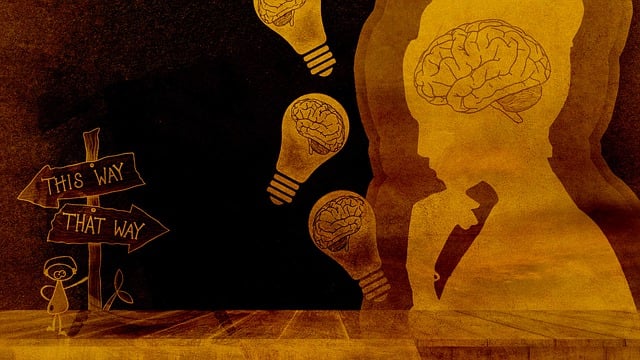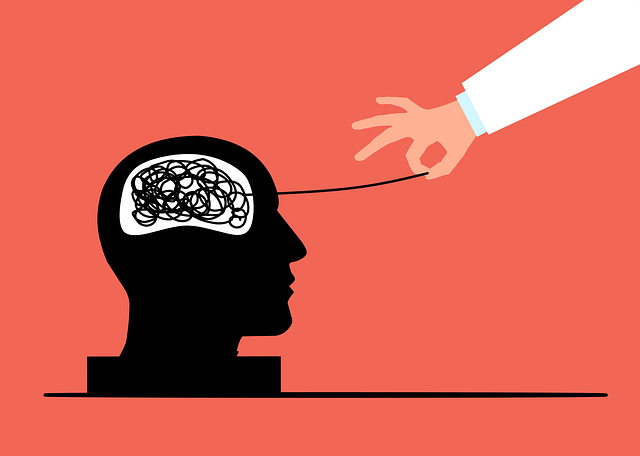Media portrayal of mental illness significantly influences societal attitudes and individual self-perception, with accurate and empathetic depictions reducing stigma and encouraging support. However, negative stereotypes can deter help-seeking and perpetuate marginalization. Broomfield Self-Esteem Therapy offers a novel approach by prioritizing self-esteem building for healing, challenging traditional symptom-focused methods. To improve media accuracy, creators should collaborate with mental health experts, integrate mood management strategies, portray complex characters, and showcase diverse mental health conditions, fostering nuanced public discourse on emotional well-being.
Mental illness representation in media has long been a point of contention, often perpetuating harmful stereotypes. This article delves into the challenges faced and offers solutions. We explore the profound impact of media portrayals on public perception, highlighting how stereotypes and misconceptions contribute to stigma. Introducing Broomfield Self-Esteem Therapy, a groundbreaking approach that promotes positive mental health narratives. Additionally, we provide strategies for media creators to achieve more accurate and empathetic depictions, fostering understanding and compassion in the process.
- Understanding Mental Illness Representation in Media
- The Impact of Stereotypes and Misconceptions
- Broomfield Self-Esteem Therapy: A Novel Approach
- Strategies for More Accurate and Empathic Portrayals
Understanding Mental Illness Representation in Media

Media plays a powerful role in shaping public perception, and its representation of mental illness can significantly impact societal attitudes. Understanding mental illness in media involves recognizing the diverse ways it is portrayed—from stigmatizing stereotypes to more nuanced, empathetic narratives. These depictions have profound effects on individuals’ self-perception and society’s overall approach to mental health. For instance, positive representations, such as those found in Broomfield Self-Esteem Therapy, can foster compassion and reduce the stigma associated with seeking help.
Effective media portrayal goes beyond mere accuracy; it involves showcasing the humanity of individuals with mental illness, their resilience, and the various paths to recovery. Compassion cultivation practices, as seen in many therapeutic approaches, can be enhanced by such representations, leading to increased empathy. Mental illness stigma reduction efforts are more successful when media contributes to a culture that embraces understanding and support for those facing anxiety relief and other mental health challenges.
The Impact of Stereotypes and Misconceptions

The media’s portrayal of mental illness often perpetuates harmful stereotypes and misconceptions that can significantly impact how society understands and treats individuals struggling with their mental health. These representations can either reinforce stigma or, worse, offer a one-dimensional view of complex conditions. For instance, depicting characters with severe depression as solely hopeless and helpless reinforces the idea that recovery is impossible, which can deter those in need from seeking help. Conversely, media that showcases quick fixes or romanticizes overcoming mental illness without adequate support can set unrealistic expectations for individuals undergoing treatment, such as Broomfield Self-Esteem Therapy.
Such stereotypes and misconceptions contribute to a culture where people with mental health issues are marginalize further. They may internalize these negative portrayals, leading to lower self-esteem and increased feelings of isolation. This is particularly concerning given the growing recognition of burnout prevention and stress management as vital components of overall well-being. By promoting unrealistic expectations, media can hinder individuals from adopting effective coping strategies based on Mind Over Matter principles. Thus, it’s crucial for media creators to strive for accurate, nuanced representations that reflect the diverse experiences of those living with mental illness.
Broomfield Self-Esteem Therapy: A Novel Approach

Broomfield Self-Esteem Therapy offers a novel approach to addressing mental health issues by focusing on building and strengthening self-esteem as a foundational aspect of healing. This therapy challenges traditional methods that often target symptoms without tackling the root cause—low self-worth. By prioritizing emotional regulation and fostering positive self-perception, this innovative practice aims to revolutionize mental healthcare. The approach encourages individuals to challenge negative thought patterns and beliefs about themselves, promoting a healthier sense of identity.
This method is particularly effective in preventing burnout among those in high-stress environments, such as healthcare settings. By enhancing cultural competency training for healthcare providers, Broomfield Self-Esteem Therapy ensures that patients receive care tailored to their unique needs. Through this holistic approach, individuals can develop the tools needed to navigate life’s challenges with resilience, ultimately improving overall well-being.
Strategies for More Accurate and Empathic Portrayals

To foster more accurate and empathetic representations of mental illness in media, creators should prioritize authentic storytelling. This involves consulting with experts, including mental health professionals like those offering Broomfield Self-Esteem Therapy, to ensure accuracy in symptoms, treatment, and recovery journeys. By integrating mood management and mental wellness strategies into narratives, media can promote understanding and reduce stigma. Portraying characters grappling with mental illness as complex individuals with unique experiences, rather than stereotypes, is key. Additionally, showcasing diverse representations of mental health conditions and various paths to healing can contribute to a more nuanced and empathetic public discourse on emotional well-being promotion techniques.
Mental illness representation in media has long been a topic of debate, with stereotypes and misconceptions prevalent. However, innovative approaches like Broomfield Self-Esteem Therapy offer hope for more accurate and empathetic portrayals. By challenging these narratives and embracing diverse, nuanced perspectives, media can foster understanding and reduce stigma, ultimately improving mental health outcomes for all. Strategies for better representation must be continually explored and implemented to create a more inclusive and supportive societal narrative.












